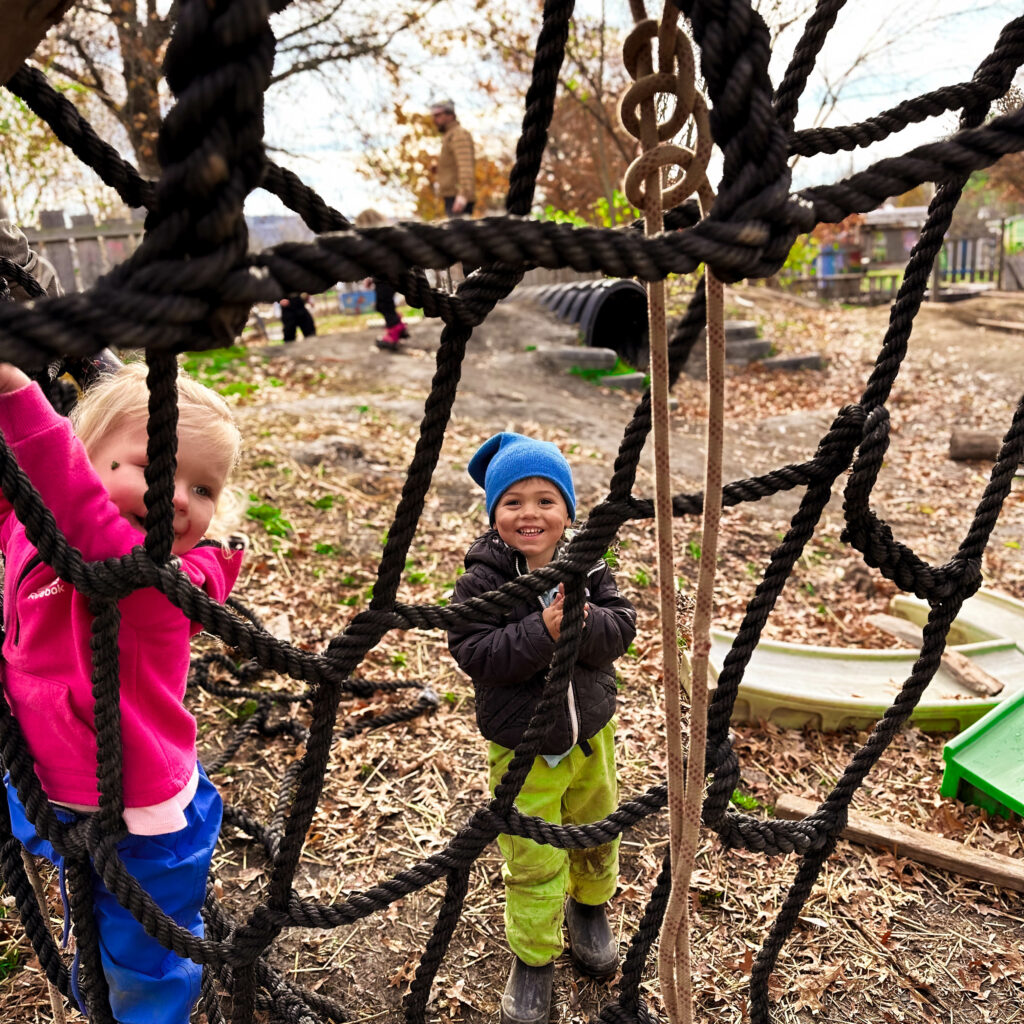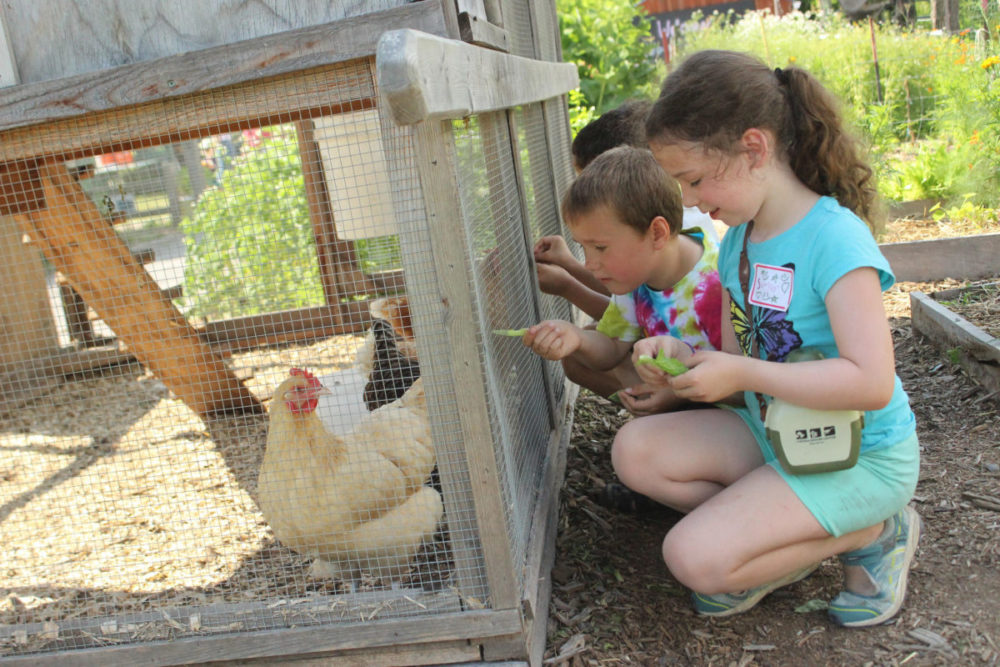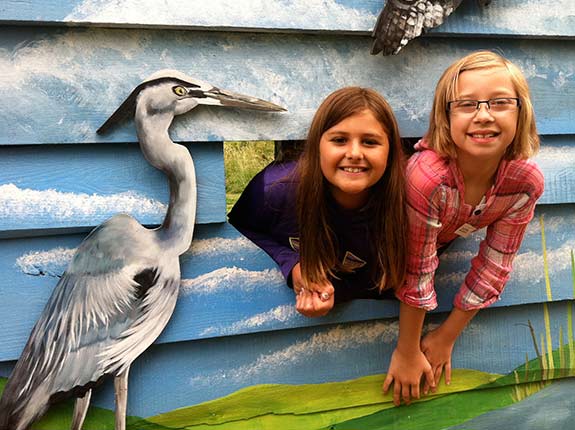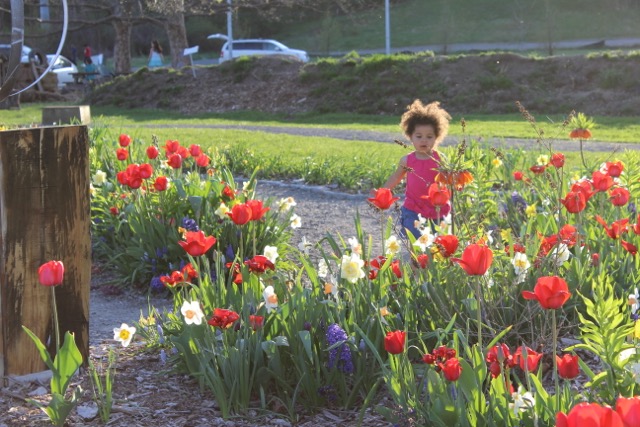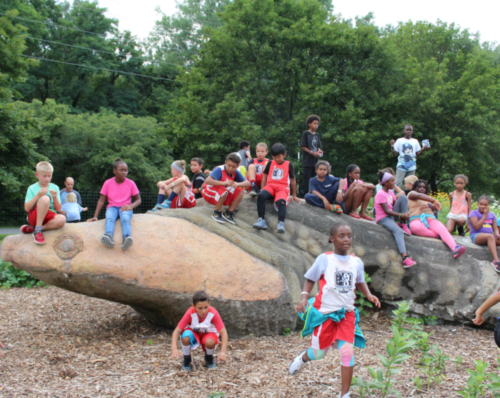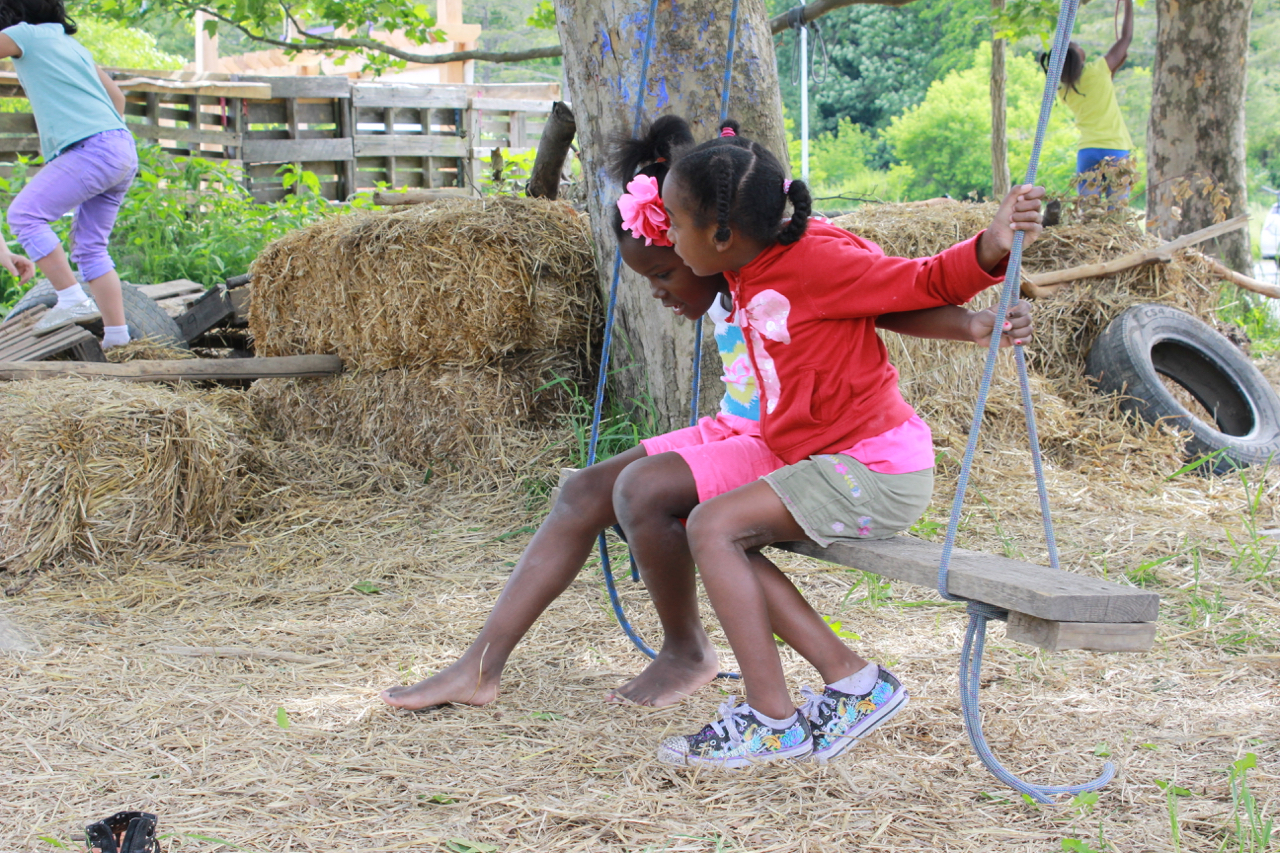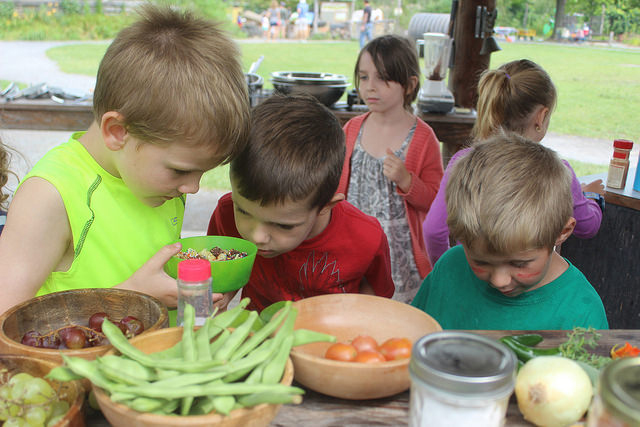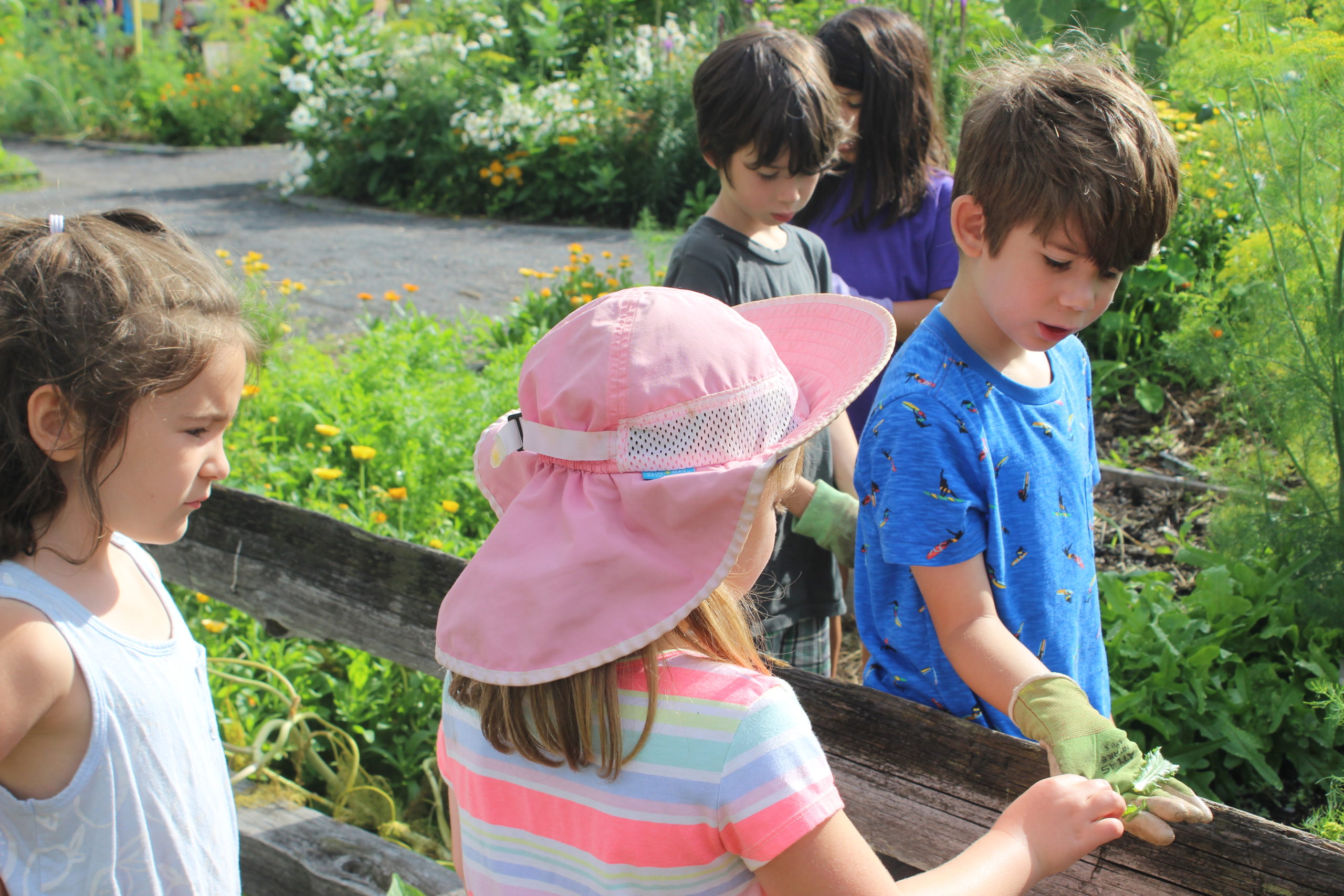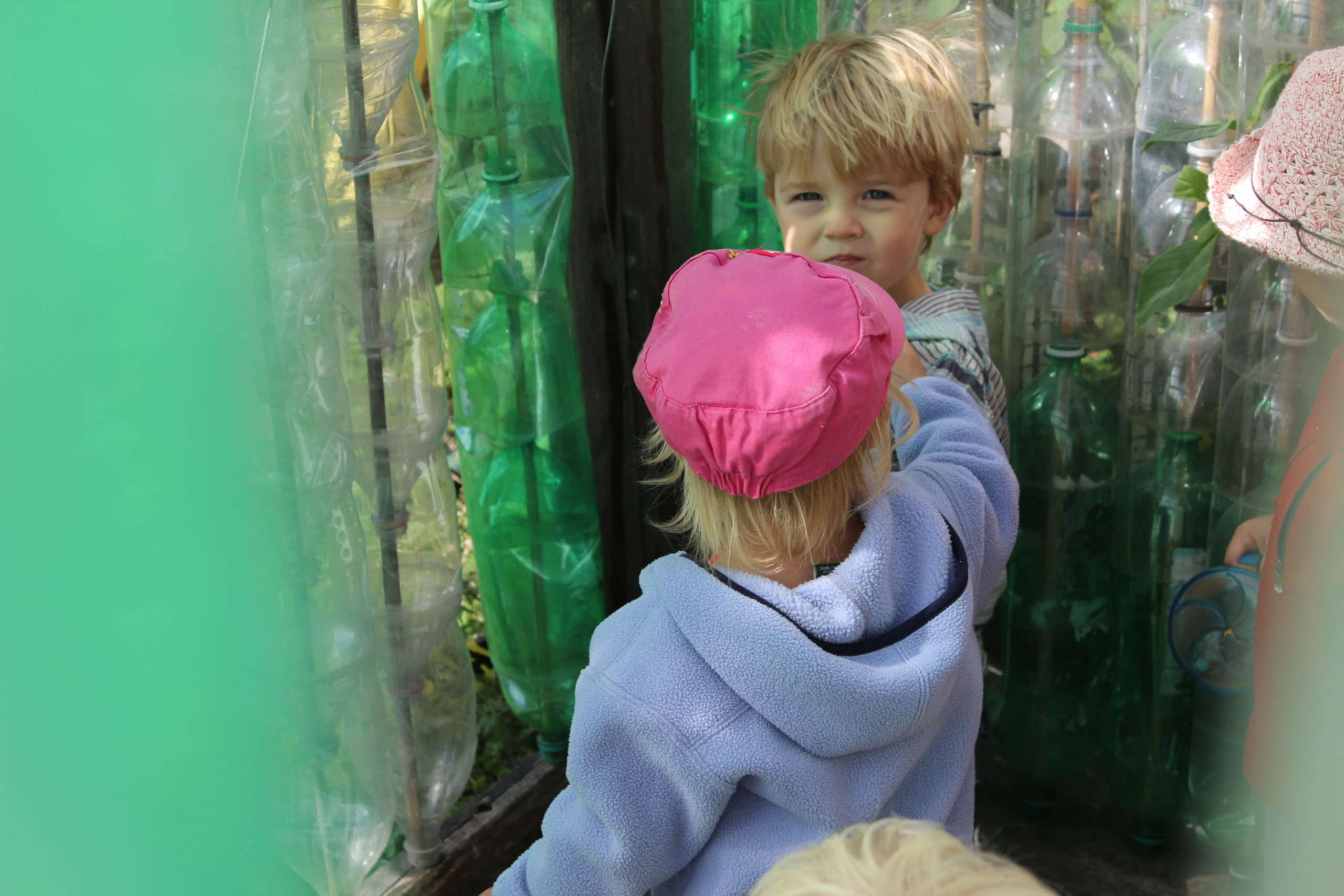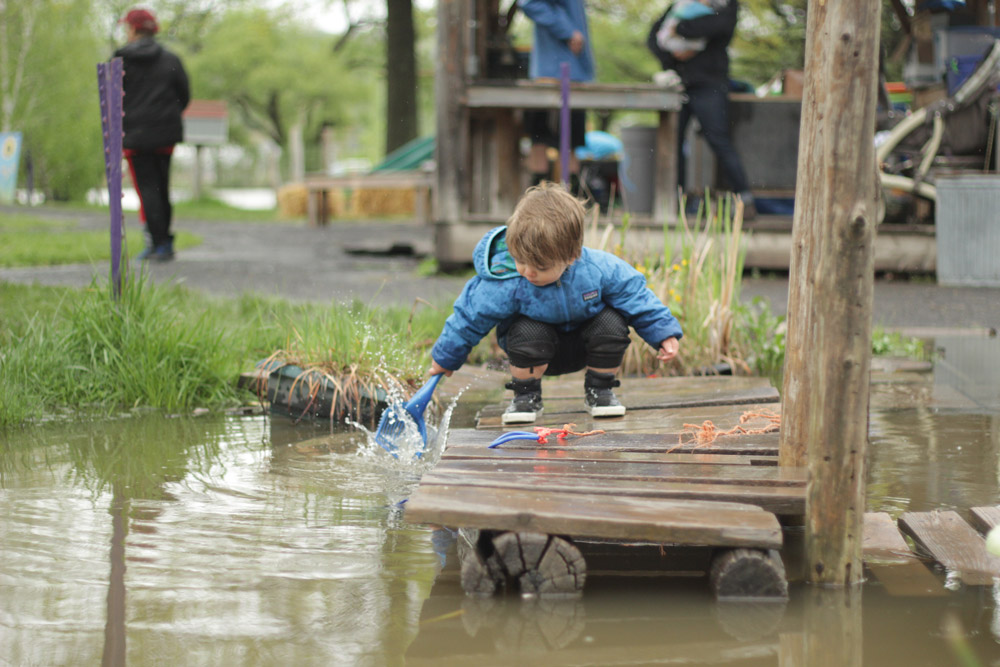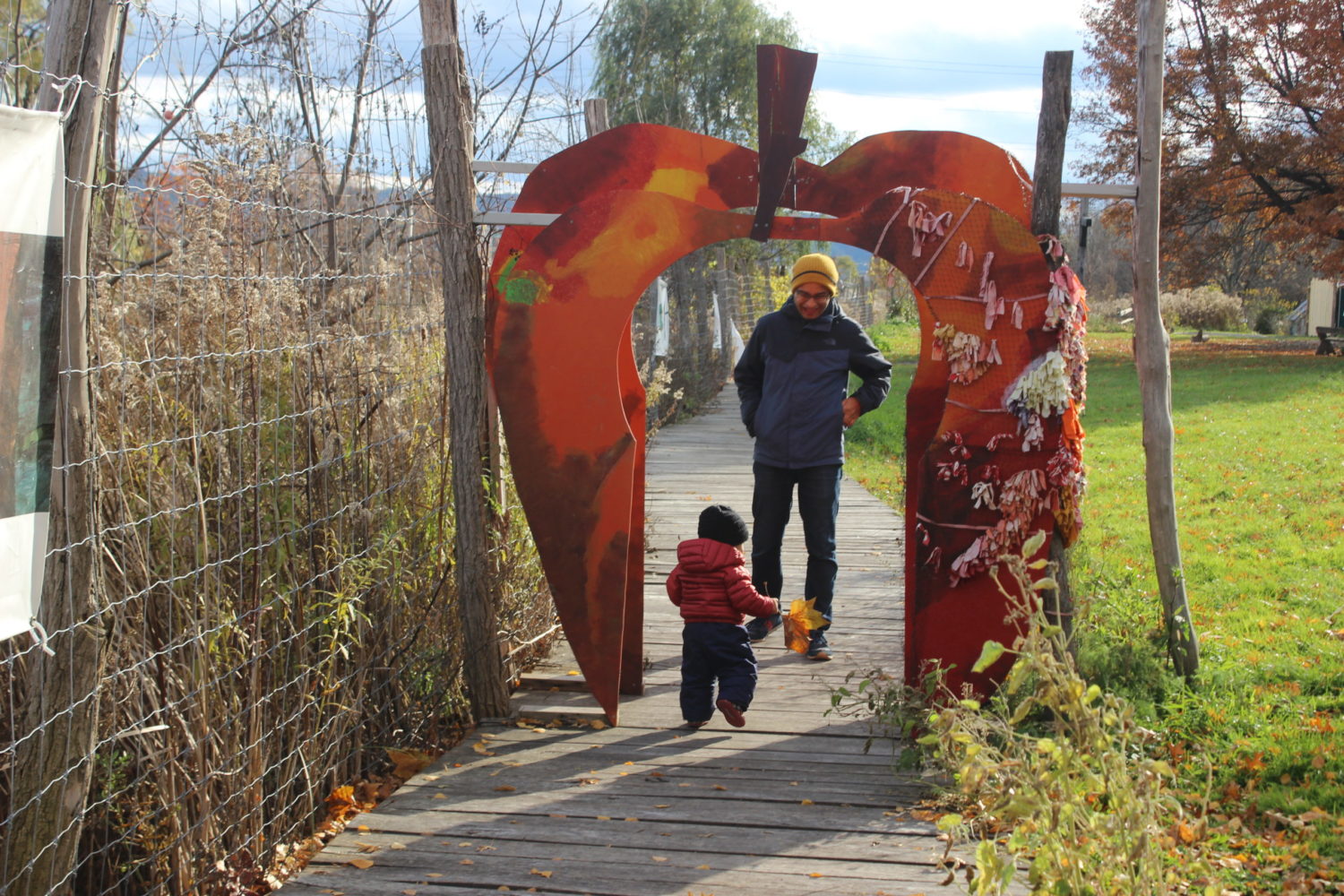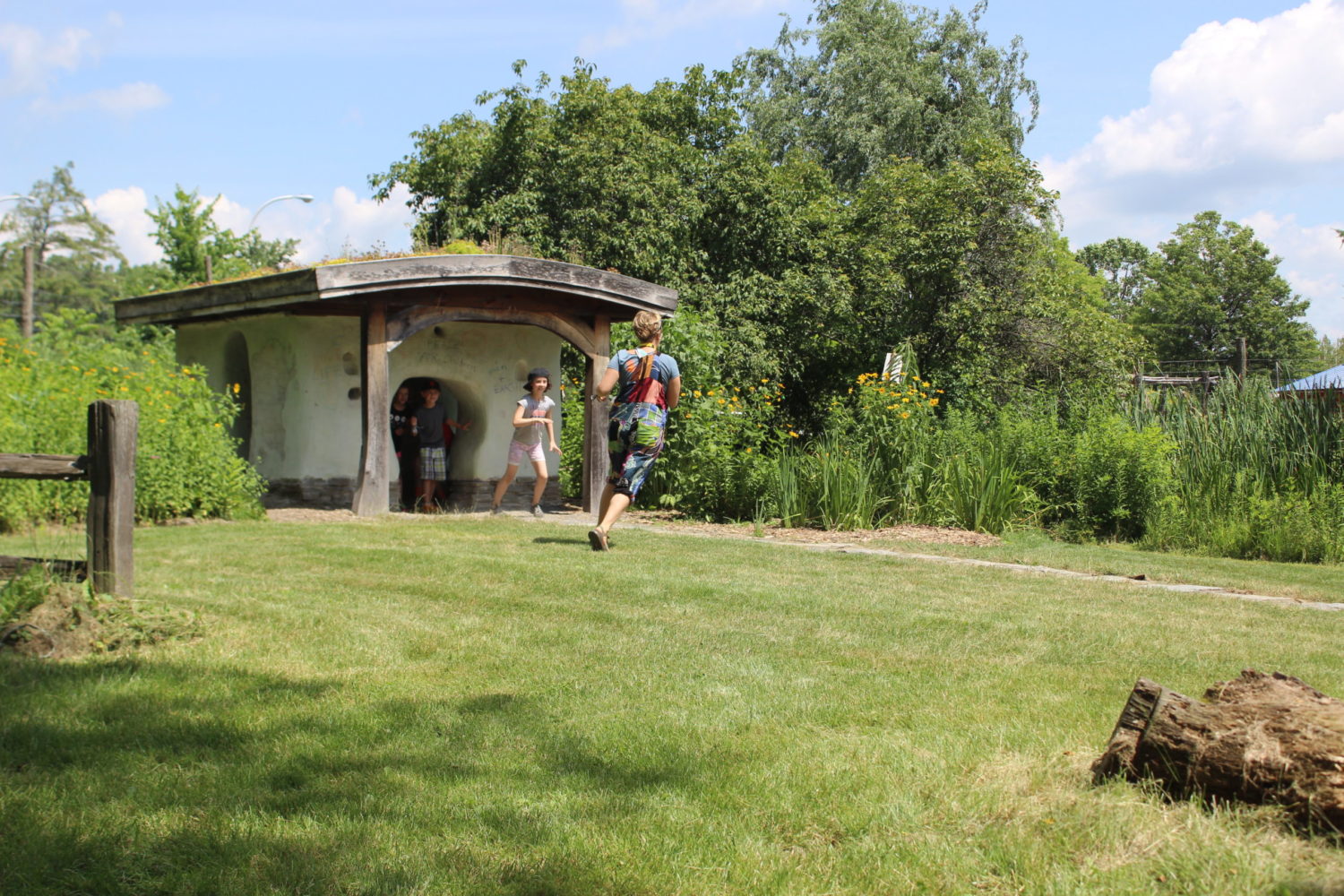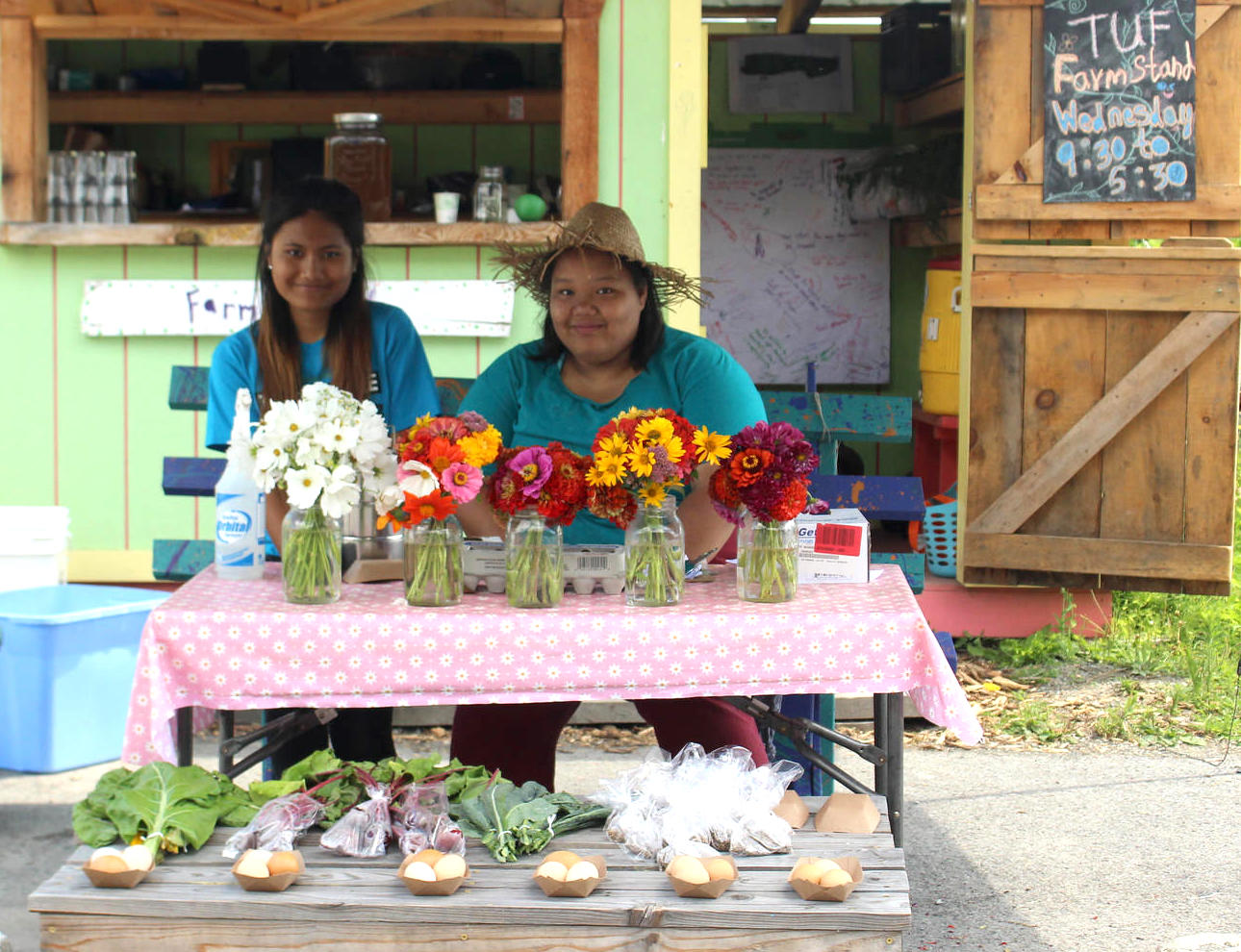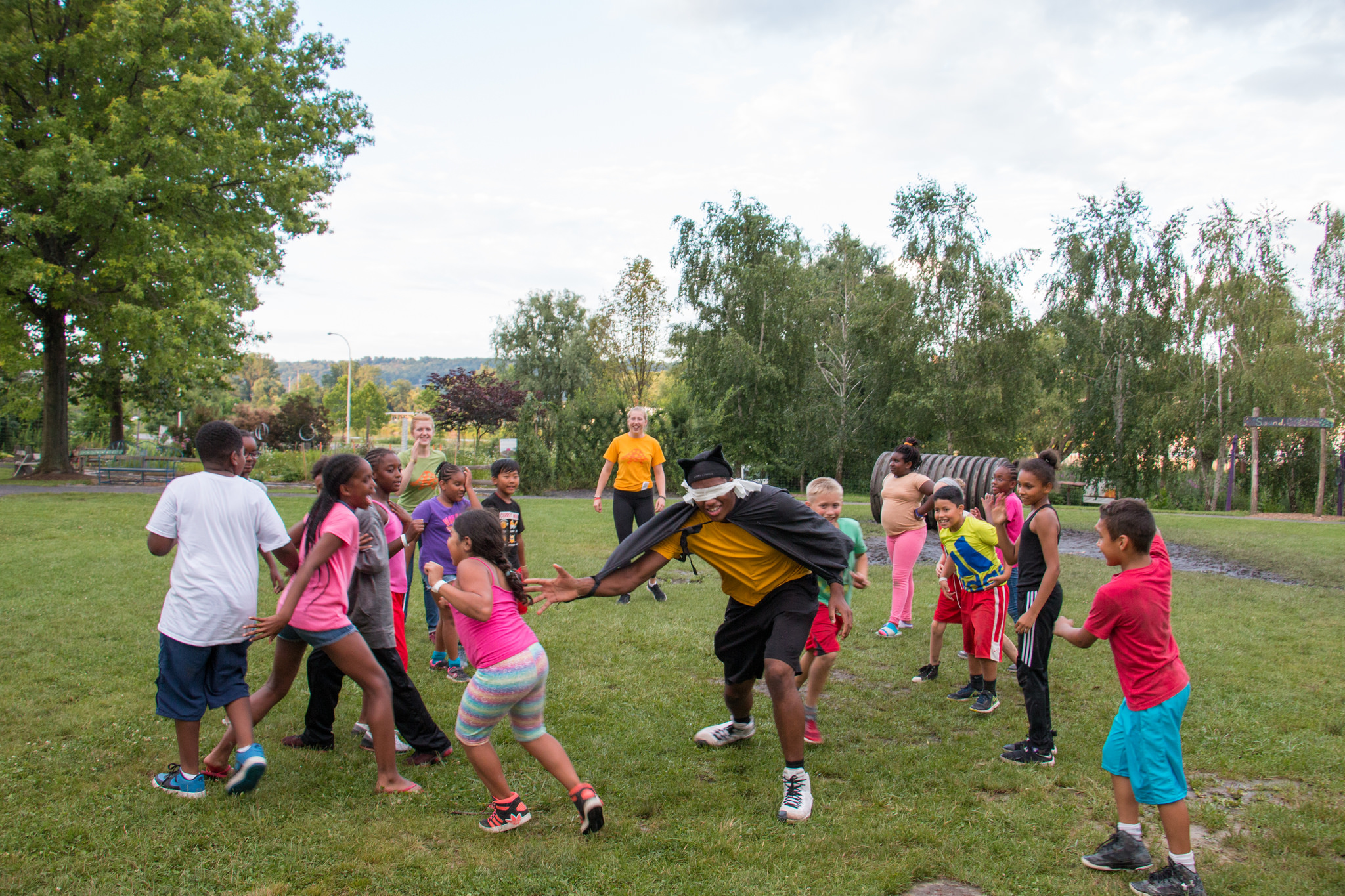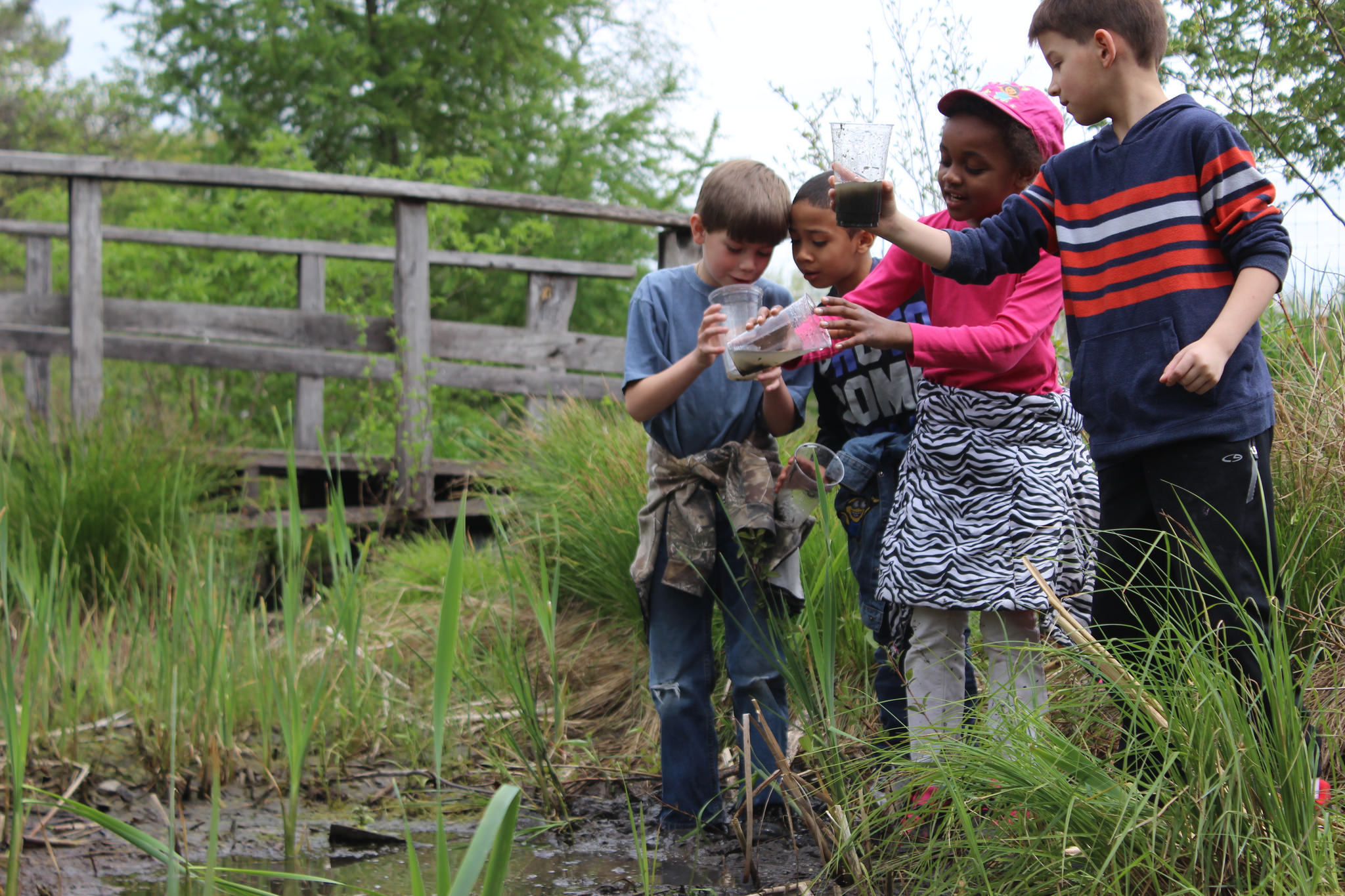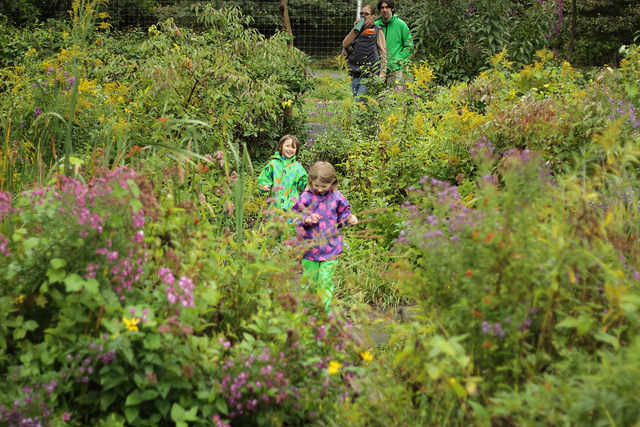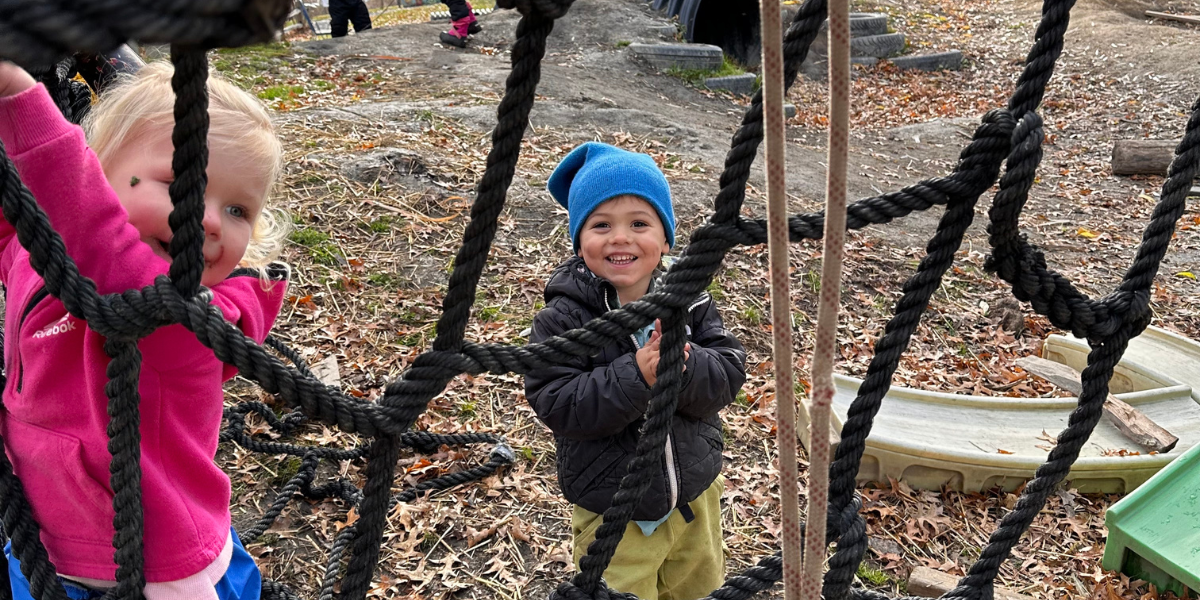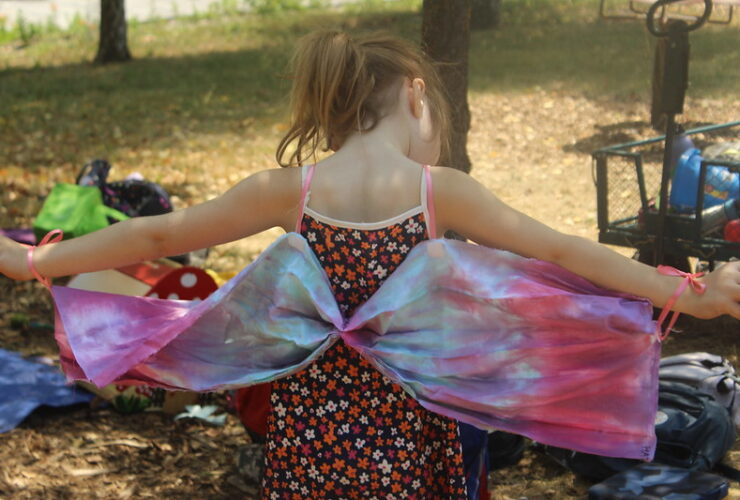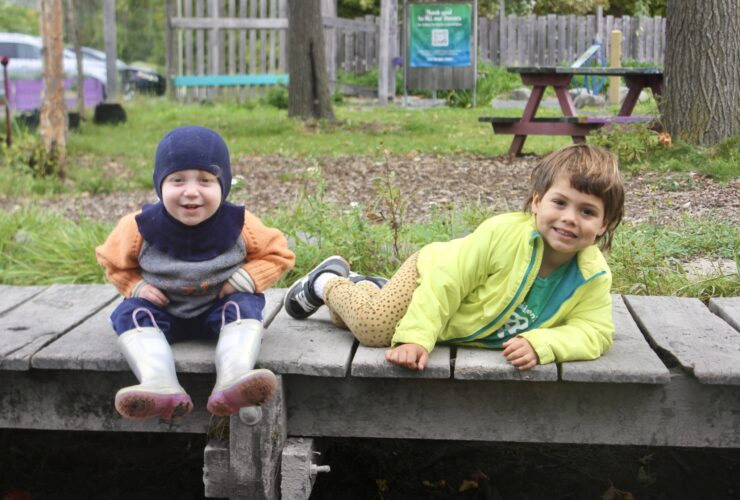Keith’s Journey: How Your Support Helps Children Conquer Challenges at ICG
By Jae Darling, Communications Coordinator
Introduction
It started as a brisk morning at Ithaca Children’s Garden (ICG), with all of us – staff and children alike – bundled up in hats and gloves, but it quickly warmed up under the sun’s persistent attention. For the first time in a few days, the sun broke through the gray mat of clouds, and the layers peeled off as Playful Nature Explorers transitioned to the Hands-On Nature Anarchy Zone.
As I stood in the Hands-On Nature Anarchy Zone, a smorgasbord of items and experiences awaiting creative young minds in the Ithaca Children’s Garden, my attention was drawn to Keith, a Playful Nature Explorer, gazing determinedly at the climbing web. I was following the preschool children to take photos, and Jason had just constructed the newest attraction for the kids: a rope climbing web strung up on wooden posts.
It was an immediate hit: numerous toddlers swarmed it, but after a time, the novelty faded, and their attention turned elsewhere. That’s when Keith stepped up.
I didn’t realize it then, but Keith’s decision would soon become pivotal for him and me.
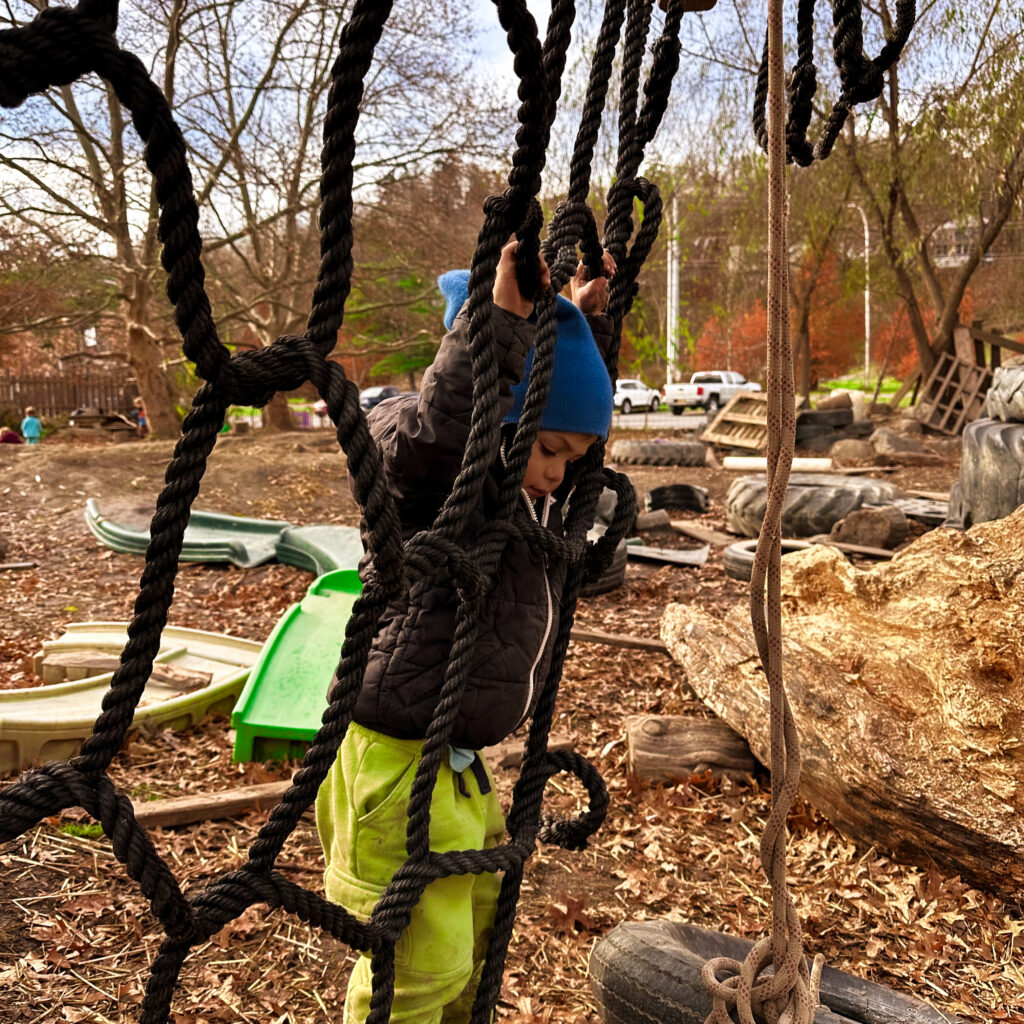
Keith’s Challenge
Keith’s initial attempts to conquer the web were met with the unyielding law of gravity. Each fall was a stark reminder of the challenge he faced. Yet, it wasn’t his tumbles that caught my attention; it was his unbreakable determination and resilience, persisting through the disappointment of each unsuccessful attempt. This was more than a child trying to climb; this was a young soul learning to stand up, dust off, and try again, embodying the essence of learning through play and exploration.
A Moment of Transformation
Despite his determination, Keith’s growing frustration was palpable, showing in the way his face pinched. While the web had waned in popularity, a few kids–some younger and smaller in size than him–had climbed past him to the top. Each time he fell, his eyes tracked to them–I could see his mind working.
How are they doing that? What are they doing that I’m not? I imagined him thinking.
Finally, after his fourth or fifth fall, Keith looked at me—the closest adult—and, with a mulish tone reflecting his plight, issued his plea: “I need help.”
This was a turning point. A moment of vulnerability.
I could help Keith with what he wanted (to climb up) by lifting him. He would accomplish his goal and look out over ICG at an unfamiliar height. Then, he would likely ask me to help him down after a short while. It would be one and done. That excitement would likely evaporate like that morning’s clouds under the sun–fleeting and forgotten.
I paused, feeling uncertain about how to reply. While I have over a year of experience leading early literacy development during my previous job, it was always in a small group setting with caregivers present, who often took on these requests. Was there any other option I could suggest to Keith for moving forward apart from his request?
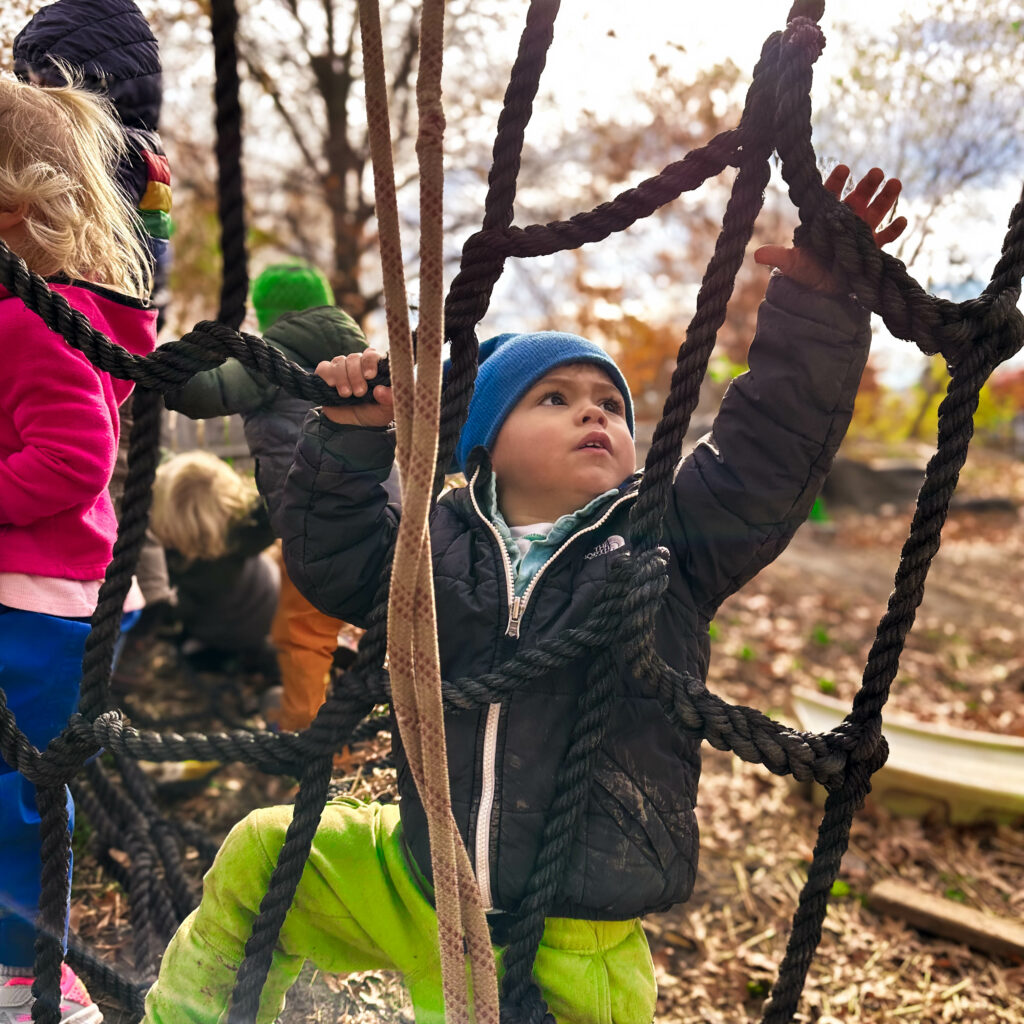
I recalled my interviews with seasonal summer camp staff and the lesson on risk-taking. If children can’t get into a situation without help, they can’t remove themselves without it. If Keith wanted to climb up, he needed to do it himself.
So, I offered him words I often tell myself: “It’s okay to feel disappointed, Keith. But remember, you can do hard things.”
My words reflected what I knew, which I feel we must all reaffirm once in a while, even as adults. Sometimes, it is often necessary to embrace the struggle, believe in ourselves, and persevere to achieve the best results for ourselves.
I’m the Communications Coordinator for Ithaca Children’s Garden, and I don’t typically work with kids directly as part of my work. Because of this, I can’t pinpoint exactly what about my words struck Keith. However, I can say this: “I can do hard things” became his rallying cry as he approached the web again with newfound determination.
He scrabbled at the rope, holding on tight as it wobbled once his feet left the ground. With renewed vigor, Keith climbed.
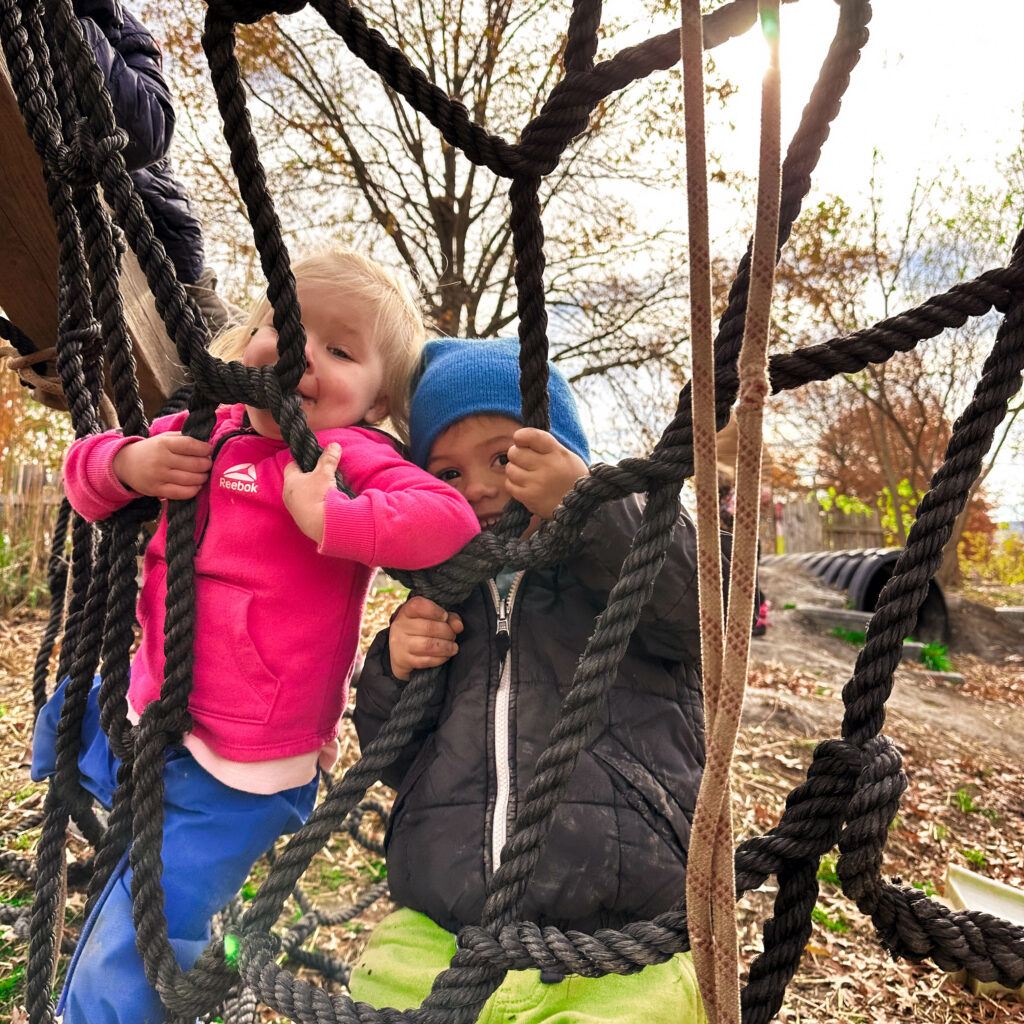
In a movie, this moment would be presented as a montage. The protagonist would fall and fall again, but each time, they’d get to their feet, a determined glint in their eyes. The music would rise to a crescendo when they broke through the obstacle and came out on top.
However, this is real life: Keith’s story didn’t end with him reaching the top of the web; rather, it culminated in a moment of joyous laughter halfway through, a testament to the joy in the journey itself.
His achievement was not about conquering a physical structure but overcoming his doubts, finding strength in the face of challenge, and inspiring those around him to believe in themselves, too.
Even if he didn’t reach the top that day, his happiness from persevering stays with me, encouraging me and reminding me of ICG’s mission.
The Role of ICG in Fostering Resilience
This moment with Keith highlights what we do at ICG. Our environment and programs are designed to encourage children’s resilience and self-discovery. We’ve seen countless children like Keith find their strength and confidence here. Your donations make these transformations possible, which helps us maintain this nurturing space and develop programs that challenge and support our young explorers.
By supporting ICG, you’re not merely donating; you’re opening doors for countless children to a community where they can thrive: confident, resilient, and filled with joy. You extend the magic of ICG to many more, fostering a generation of young explorers equipped to learn, grow, and develop a lifelong relationship with the living world. Together, we co-create stories of triumph, resilience, and boundless joy in the heart of nature.
